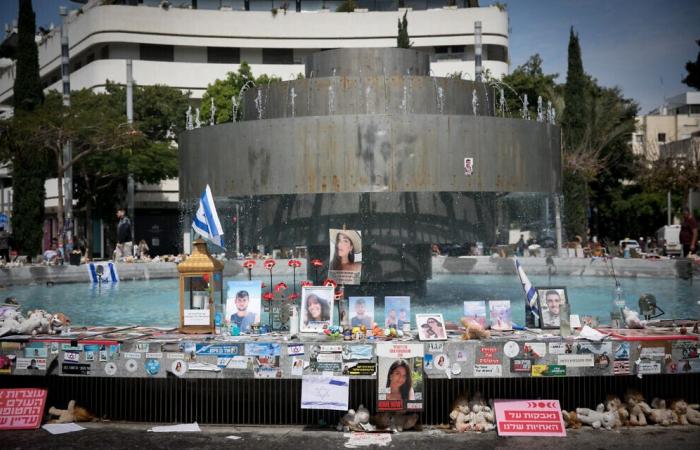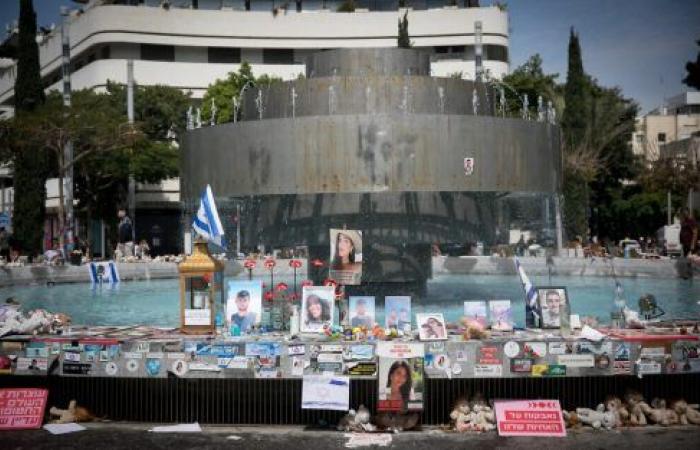“Italia Israel Today” interviews Sergio Della Pergola
by Giuseppe Crimaldi
Sergio Della Pergola, interviewed in this article
“Israel is experiencing dramatic times, but also decisive ones for its future. I say this not only thinking about the war against Hamas, the civilian hostages and the UN resolution on the ceasefire, but also about the internal evolutions of national politics. The Supreme Court is currently called upon to untie a Gordian knot: the one on the obligation of military service also for men haredim, the ultra-Orthodox who until now have been exempted from serving for the army in the defense of the nation. In the next few hours we will know more, but the country is tired of this privilege reserved for them.”
Sergio Della Pergola he is professor emeritus of Demography at the Hebrew University of Jerusalem, but he is also one of Israel’s most astute political analysts. Born in Trieste into a Jewish family, Sergio is the son of the journalist Massimo Della Pergola, also known for having invented the football pools slip. In December 1943 he escaped the Nazi-Fascists’ roundups, after the war he grew up in Milan and moved to Jerusalem in 1966.
In this interview with Italy Israel Today addresses the situation that Israelis are experiencing today between bitterness, disappointments and hopes, after October 7th.
– The decision of the UN Security Council on Monday evening still stings, when the resolution on the ceasefire was passed at the Glass Palace, with the United States abstaining. What happens now?
“The Security Council motion must be read carefully: it says that a ceasefire must be achieved in the Strip and that all Israeli hostages must be freed. I would have reversed the formula, placing the release of the prisoners in the hands of Hamas before the ceasefire, but the fact that for the first time the release of everyone the hostages is a new and very important fact. The negotiation that is limping in Qatar had so far stopped at partial releases, the latest draft spoke of 40 hostages to be released. Today, however, there is what for me is a formally very important step forward. As for the attitude taken by the United States, we are faced with a political decision: the abstention of the USA is conditioned by the American electoral campaign, in which Joe Biden seeks consensus on the left and in the Muslim electorate which in some states – I am thinking of Michigan – are then decisive in the final vote count.”
The hostages remembered by the people in Dizengoff Square, Tel Aviv. For some reason the release of hostages, when called for, is always put on the back burner to the ceasefire. Sergio Della Pergola: “The order of factors matters in this case”
– Is there a risk that after the American decision Israel will remain isolated?
“The decision is also a message to Prime Minister Benjamin Netanyahu, to tell him: ‘Be careful Bibi, we have the handle of the knife and not you’. But this is a slap in the face to Netanyahu, not to Israel. I wouldn’t be a catastrophist, and I don’t think America will leave Israel alone.”
– And Netanyahu? What will be his future once the war is over?
“Netanyahu arrived in front of a wall. Perhaps in Italy little is said about it, but here in Israel at the moment the political issue is linked to the enlistment of young people in the army haredim. Who, until now, have enjoyed a privileged status that has always allowed the ultra-Orthodox to be exempt from military service, even if this exemption has no longer been a law since 2018, when the Supreme Court chose to cancel it. It is on this question that the haredim they risk splitting the government.”
– Why?
“The Israeli Supreme Court has given the government 24 hours to clarify whether it intends to modify this privilege, providing programmatic guidelines that will clarify how to proceed in the future in the face of this blatant discrimination; or clarify the reasons for the same inequality to the detriment of thousands of young Israelis called to defend the country.”
– Is this an issue felt in Israel?
“A lot, and in the next few hours we will see what will happen. People here are tired of justifying this exemption, this hateful privilege. About 600 Israeli boys died, including those murdered on October 7 while defending the borders and those killed in the war. And there are, among the young people of Tzahal, more than 3,000 seriously injured people, who will live with amputated limbs or very serious disabilities. Why, the Israelis ask, must these heroes have sacrificed themselves also to defend the right to existence of the ultra-Orthodox? The vast majority of Israelis are outraged: what are you doing? haredimwhile our children defend you too with their lives?”
And what will happen in the face of the Supreme Court’s either-or?
“There are two hypotheses: either in the near future also the haredim they will have to wear the uniform of Tzahal; or the scenarios become unpredictable: Bibi will have to postpone his decision through a thousand contortions and perhaps he will manage to get an extension from the Court for a few more months. But the showdown at this point will be inevitable.”
– In what sense?
“The government could even fall on this crucial point. Within the majority there are those who can no longer stand the privileges reserved for the ultra-Orthodox. Even in the Likud there are at least four ‘snipers’ ready to shoot Bibi if the law doesn’t change. And it is no coincidence that this patrol is captained by Yoav Gallant, the defense minister, who is a former general. And there is also the powerful president of the Foreign Affairs Commission to support his line. Of course, Bibi has accustomed us to always new magic tricks: but I think this time it will be difficult for him to pull a rabbit out of the hat.”
Professor, Italian universities today are a territory of anti-Israeli ideological battle, and no longer places of learning and knowledge. Raids in the Academic Senates, blockades, occupations, attacks on rectors. In command are the “student collectives” and young people who are strongly aligned and politicized, who also ignore history. Are you worried about this situation, which is by no means unique to Italy?
“There is a degenerative process underway. Italian universities today look much more like a student club, political clubs shamelessly aligned in the trenches of anti-Zionism, which is more often than not anti-Semitism. Everything happens in the name of an alleged ‘freedom of debate’ which is not such: I think of what happened at the state university of Milan, where the ‘debate’ was entrusted to a meeting in which two speakers took the chair as Moni Ovadia and Francesca Albanese. Where was the conversation, the comparison, with two similar subjects?
Let’s go back to Israel. What is the political future of Netanyahu and his government? Would new political elections be needed?
“I think they are essential, but it is very difficult to organize them in the middle of a war situation. Netanyahu must leave as soon as possible because he causes irreversible damage to Israel, and for this reason new elections are necessary which, however, are difficult to organize in the midst of war.”
Recently a survey carried out by the ‘Palestinian Center for policy and survey research’ by Professor Khalil Shikaki – a Palestinian from Ramallah – highlighted that Hamas unfortunately still enjoys great support from the Palestinian population: and, even more than from the inhabitants of the Gaza, by the Palestinians of the West Bank. Is this survey reliable?
“I remain skeptical of the idea that a separation from Hamas is taking place among the Palestinians. There are some weak signals, it is true, especially in Gaza, among the people exhausted by months of war: but I think it is very difficult to answer – at least at this moment – the question. Shikaki’s poll certainly has a reliable basis where he says that in the Strip 52% still want Hamas, while in the West Bank the percentage rises to 62. This unfortunately means that Hamas has not been defeated at all.”
(From Italia Israel Today (www.italiaisraele.org), 26-27.3.24)
Interviewed for podcasts of Menorah reflections on the document published by “Left for Israel”, Sergio Della Pergola responded: “I have carefully read the document ‘From 7 October to peace’, the Left manifesto for Israel: it is very weak, it does not include what must be the true needs of negotiation and support for Israel. I’ll give just one example: the document begins by recommending a ceasefire and the release of the hostages. I would rewrite it by saying: we need to free the hostages and then make a ceasefire. That is, the order of factors in this case matters. Moving forward, the only politician anyone talks about is Netanyahu. Now, Netanyahu clearly is a big problem, a big burden who is doing enormous harm to the state of Israel. But he is not the only politician from the Middle East. A word about Sinwar, a word about Abu Mazen would be in order. That is, criticizing Israel is more than justified. But it cannot be done without also sharpening criticism of the other party. The origin of all evil is in Tehran, this thing must be said. These fanatical, anti-Semitic movements must be explicitly condemned, when we are rightly concerned about the enormous loss of innocent human lives. And therefore I recommend a more incisive and more convincing formulation, which allows many people like me to sign this appeal, which I appreciate very much because the intention is very good. But it needs to be reformulated.
(From: Riflessi podcasts, 18.3.24)Here, interview by Popular Radio to Luciano Belli Paci on “Left for Israel” (23.3.24) approx. 11 minutes)
March 28, 2024
Actuality




